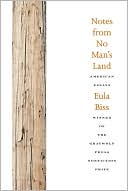Category Books
- Fiction Books & Literature
- Graphic Novels
- Horror
- Mystery & Crime
- Poetry
- Romance Books
- Science Fiction & Fantasy
- Thrillers
- Westerns
- Ages 0-2
- Ages 3-5
- Ages 6-8
- Ages 9-12
- Teens
- Children's Books
- African Americans
- Antiques & Collectibles
- Art, Architecture & Photography
- Bibles & Bible Studies
- Biography
- Business Books
- Christianity
- Computer Books & Technology Books
- Cookbooks, Food & Wine
- Crafts & Hobbies Books
- Education & Teaching
- Engineering
- Entertainment
- Foreign Languages
- Game Books
- Gay & Lesbian
- Health Books, Diet & Fitness Books
- History
- Home & Garden
- Humor Books
- Judaism & Judaica
- Law
- Medical Books
- New Age & Spirituality
- Nonfiction
- Parenting & Family
- Pets
- Philosophy
- Political Books & Current Events Books
- Psychology & Psychotherapy
- Reference
- Religion Books
- Science & Nature
- Self Improvement
- Sex & Relationships
- Social Sciences
- Sports & Adventure
- Study Guides & Test Prep
- Travel
- True Crime
- Weddings
- Women's Studies
Notes from No Man's Land: American Essays » (Original)

Authors: Eula Biss
ISBN-13: 9781555975180, ISBN-10: 1555975186
Format: Paperback
Publisher: Graywolf Press
Date Published: February 2009
Edition: Original
Author Biography: Eula Biss
EULA BISS is the author of The Balloonists. She teaches nonfiction writing at Northwestern University and is co-editor of Essay Press. Her essays have appeared in Harper’s and The Believer. She lives in Chicago.
Book Synopsis
Winner of the National Book Critics Circle Award for Criticism Winner of the Graywolf Press Nonfiction Prize
A frank and fascinating exploration of race and racial identity
In a book that begins with a series of lynchings and ends with a series of apologies, Eula Biss explores race in America. Her response to the topic is informed by the experiences chronicled in these essays — teaching in a Harlem school on the morning of 9/11, reporting for an African American newspaper in San Diego, watching the aftermath of Katrina from a college town in Iowa, and settling in Chicago’s most diverse neighborhood.
As Biss moves across the country from New York to California to the Midwest, her essays move across time from biblical Babylon to the freedman’s schools of Reconstruction to a Jim Crow mining town to post-war white flight. She brings an eclectic education to the page, drawing variously on the Eagles, Laura Ingalls Wilder, James Baldwin, Alexander Graham Bell, Joan Didion, religious pamphlets, and reality television shows.
These spare, sometimes lyric essays explore the legacy of race in America, artfully revealing in intimate detail how families, schools, and neighborhoods participate in preserving racial privilege. Faced with a disturbing past and an unsettling present, Biss still remains hopeful about the possibilities of American diversity, “not the sun-shininess of it, or the quota-making politics of it, but the real complexity of it.”
The Barnes & Noble Review
In her groundbreaking book Playing in the Dark: Whiteness and the Literary Imagination, Toni Morrison observed the opacity of experiences of whiteness as they are depicted in literature. When Marlow, the ferry captain in "Heart of Darkness," travels deep into the Congo, he is stopped not by dark-skinned natives but by a white fog so thick that it blinds him. Morrison uses this image as tool to fathom the odd space that whiteness can inhabit in lived and literary spaces. Whiteness can seem to be a cultureless and silent nothing, a void that nonetheless exerts force as a central, normalizing vantage point. Yet whiteness is not nothing, and it is not normal: It is a space of unease, often policed and reinforced by the images of fear on its margins. In Notes from No Man's Land, Eula Bliss tries to stand on the margins of her whiteness and to look in. In a series of dazzling and often soulful essays, she explains a life mapped in white and also not-white ways. She finds that her whiteness sometimes makes her feel trapped. She is less postracial than alert to contradictions in the way this whiteness functions and to the ambivalent privileges it affords her. Her essays travel multiple, not always parallel forms of history -- personal and public trails that range from the history of telephone poles to coal mining towns to Laura Ingalls Wilder to public education. While her topics are heavy, she spins each essay gamely, with punning wit. The result: skeins that shimmer with metaphor, that pose and circle questions rather than trying to resolve them. "It isn't easy to accept a slaveholder and an Indian killer as a grandfather, and it isn't easy to accept the legacy a of whiteness as an identity," she writes in an essay where she acknowledges that she can see "two faces of the Brooklyn clock tower" -- and two faces of this question itself. "Perhaps it would be better if we simply refused to be white. But I don't know what that means, really." This may not be the answer, but the questioning opens doors to a new chapter of American self-understanding. --Tess Taylor
Table of Contents
Contents
Time and Distance Overcome....................3Relations....................15
Three Songs of Salvage....................37
Land Mines....................45
Goodbye to All That....................57
Black News....................75
Letter to Mexico....................89
Babylon....................105
Back to Buxton....................117
Is This Kansas....................131
No Man's Land....................145
Nobody Knows Your Name....................171
All Apologies....................187
Notes....................201
Acknowledgments....................225
Judge's Afterword by Robert Polito....................227
Subjects

